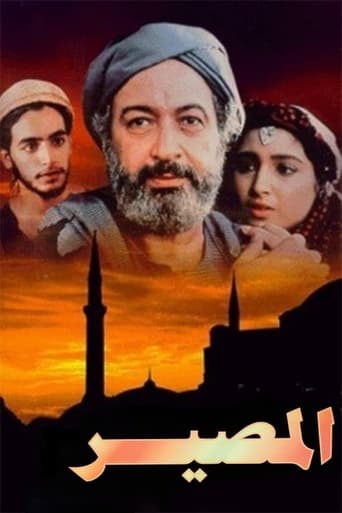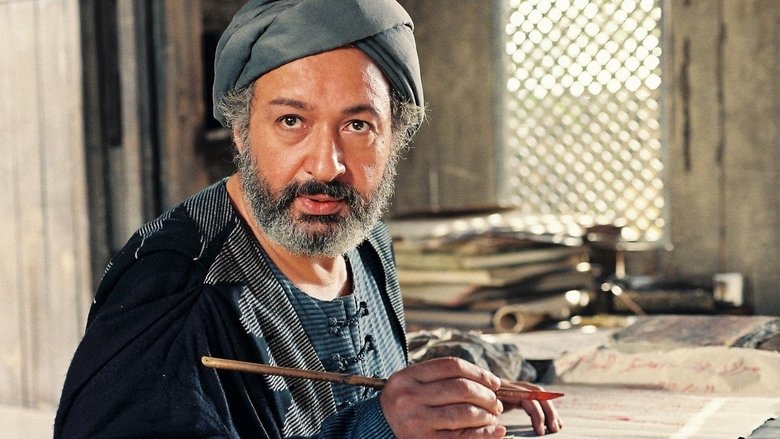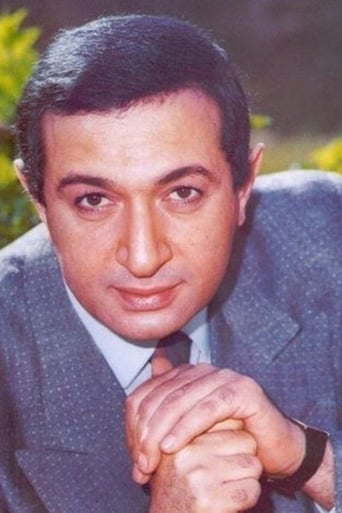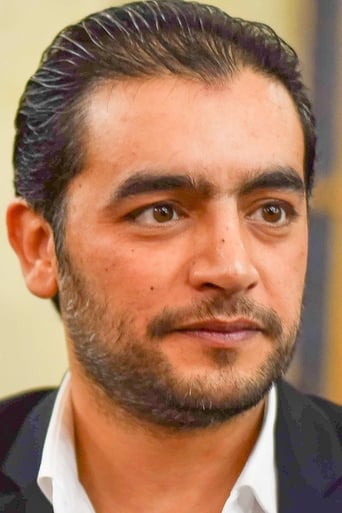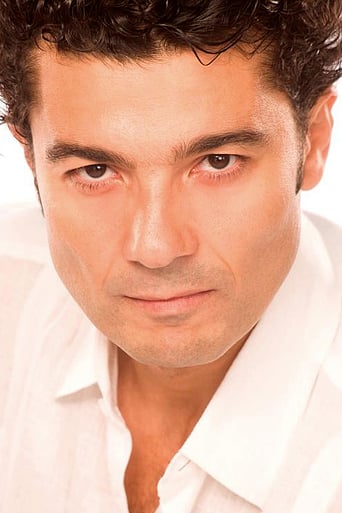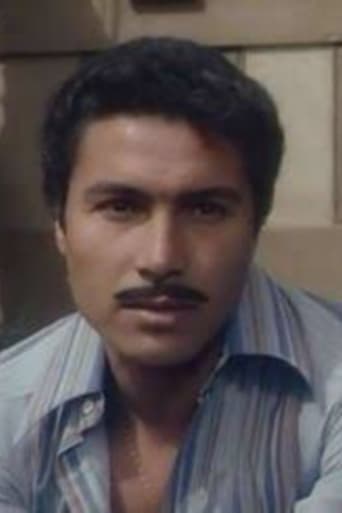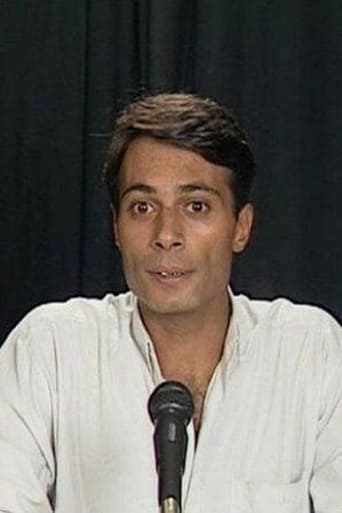In the 12th century's Andalusia lives Ibn Rushd a prominent Islamic philosopher with his wife Zeinab and daughter Salma. The principality is ruled by Khalifa ElMansour who has two sons, ElNasser, an intellectual that likes Ibn Rush and is in love with his daughter Salma. The younger son Abdallah is more into dancing and poetry, spending most of his times with the gypsy family and getting the daughter pregnant. The Khalifa is depending on the extremists to build his army granting them more power which they use to combat artists and philosophers. The extremists succeed in recruiting Abd Allah and train him to kill his father. Events go on where Marawan, the gypsy singer, is killed and Ibn Rushd's books are burnt. Adapted from the real life of Ibn Rushd AlMasir is Chahine's statement against extremism.


Reviews
This film is an entertaining and thrilling mix of melodrama, music, history, grief and joy, showing the best and worst sides of human nature. The story is set in medieval Moorish Spain, and concerns the conflict between Averroes; a historical humanistic Muslim philosopher; and a group of reactionary fundamentalists. It is extremely well acted and the characters are sympathetic as well as credible. It is often forgotten that many of the Islamic societies of the Middle Ages (particularly in Spain) were way ahead of Europe in science, mathematics, medicine, religious tolerance and most intellectual pursuits. However, there were periodic and sometimes serious conflicts with those who resented these trends.This is not just an historical epic. The Egyptian director, a very courageous man named Youssef Chanine, deliberately molded the script to show how fanaticism not only undermines a society's intellect, but destroys the very souls of its members. Particularly disturbing, but highly relevant to our times is his portrayal of the subtle manner in which young men are recruited into these movements and about how empty and dishonest they turn out to be.Although the population of medieval Andalusia was 10-15% Jewish and Averroes had extensive contact with both Jewish and Christian intellectuals, there isn't a Jew in sight and the only Christians depicted are evil, fanatical, external enemies who enter into a secret pact with the fundamentalist cult. While this is not entirely accurate and a gross simplification of the actual situation at the time, I don't fault Mr. Chanine. He has endured extreme legal harassment in the Egyptian courts over this and another film as well as extensive death threats against himself and his family. Merely exploring the themes portrayed in this movie has put his head on the chopping block, and any sympathetic depiction of Jews or Christians would have resulted in the banning of the film and possibly his head rolling into the basket. He deliberately crafted this film to educate his own society about the moral corruption and debasement of violent fanatical behavior and no doubt wanted to make sure the message got out.A bold, yet gently provocative film by a very brave man.
Mr. Chahine is masterful and downright crafty in pushing forward his message for cosmopolitan rationality vs. parochial fanaticism: Starting from a telegraphed overview of historical events, ideological currents and characters from the two-century period (XI-XII) in Andalusia that saw a wave of North-African fundamentalist mercenary Berbers wrestle power away from the weakened remnants of the enlightened Umayyad dynasty, he made a deceivingly simple parable using old-time Hollywood formats and entertainment values à la `Thief of Baghdad.' Chahine is thus successfully addressing matters of dense philosophical and political import under the guise of an almost infantile entertainment. The plot, furthermore, echoes `Fahrenheit 451' and its overall ideological stance is reminiscent of A Man for All Seasons.' On the other hand, seeing its `musical' values as a bow to Hollywood is merely scratching at the surface, since it must be kept in mind that poetry in song the obsessive discipline of enlightened Islam was the most efficient vehicle for the birth and expansion of all values appropriated by Christian Western (read, European) civilization. Hence, the formal solution signifies much more than the surface. On the other hand, Chahine ties the past quite neatly -- through his storytelling and filmmaking craft -- with current world events and thought convolutions. For example, the stabbing of the bard character in Destiny couldn't be less than a painful fictionalization of the fundamentalist attack on the contemporary Egyptian novelist Mafouz. El Massir is an important piece of work, and I think everyone who is at all concerned or curious about the nature of the global forces at work today should take a long and detained look at it. This film carries a hefty punch and what's best -- you can barely feel it, as the masterful handling of the narrative, in terms of nothing but an entertaining parable, lets the dense message flow without any pretensions of `avant-garde' stylist truculence. M
A film which will probably find many emphatic spectators due to its many facettes: * You might like historic films - this one shows you live of Andalusia in the 12th century with rich costumes and great islamic buildings; * you might prefer deep content - this film offers insight in the philosophy of the great muslem thinker Averroes (Ibn-Rushed) and the question why people get seducted by sects; * you might be interested in action, love and happy-end - this film offers as a story the conspiracy against the caliph, and happily ends with two couples that found each other (though very sensitively shown, compared to occidental films); * you might generally be interested how other cultures do films - this is a great example of oriental (Egyptian) cinema, which is close enough to be understood be occidental people; * you might like to follow personal development of the characters shown in the film - this one gives you insight in the development of the caliph's two sons: from "take all easy" to "use your own head to think". *** This film can be highly recommended !!! ***
I saw the film a couple of years ago. I thought it was a very good film. It dealt with terrorism, its origination and its effects on the youth and society of 12th century Arabia, which forms a present and alive problem in modern Arabia. The film had a great deal of technique and style. Although the film is set in the past, the language of the script is in colloquial Arabic, which is spoken on the streets of Egypt at this point in time. Making delivering the content of the words more important than giving the audience a believable setting. Aside from being a historical representation it was a philosophical thought on religion, society and politics. Some of the obvious themes in the film were as follows. The freedom of thought expressed in the power of the written and spoken word as a form of representation of the people, what they stand for, and their sufferings. In addition to the self and social destruction caused by ones political motivation hidden behind a religious façade. Finally the film brings great memory of Francois Truffaut's `Fahrenheit 451'-. In making the point that one can burn all the books in the world, but that would never take what is in the books away from the people, because true words, weather written or memorized, are humanities memory and being till the end of time. Both films complement each other, one can darlingly view, `Al-Massir' as the beginning of a time that was elaborately explored in `Fahrenheit 451.' Both films had the same ending, in which the books were burnt and the words were kept in the memory of the people, independent of what the present political power did. The words of scholars, philosophers and story tellers live forever.
